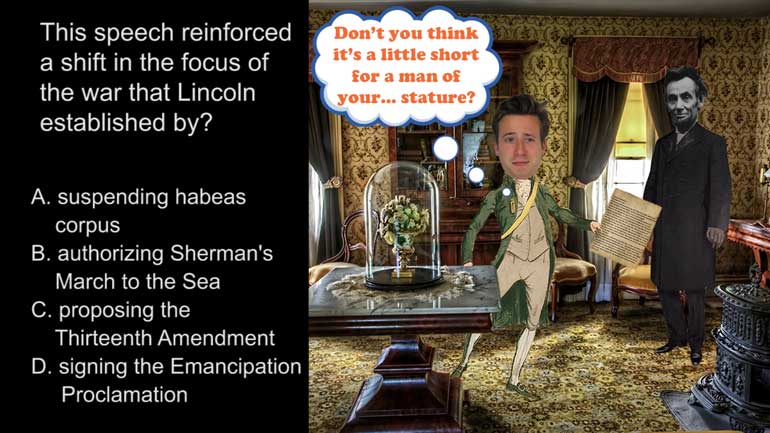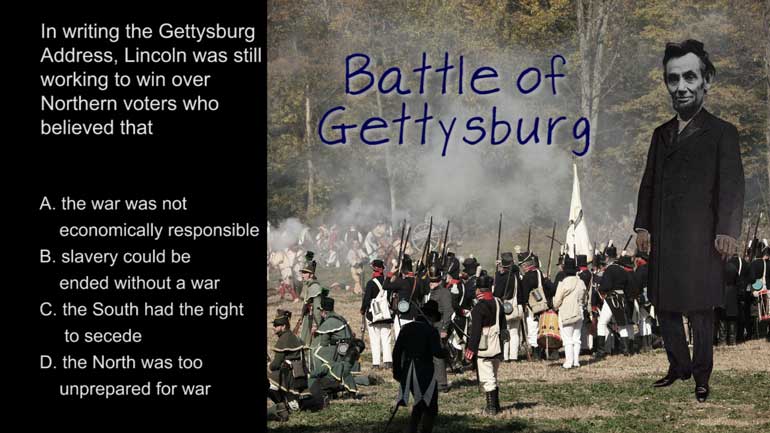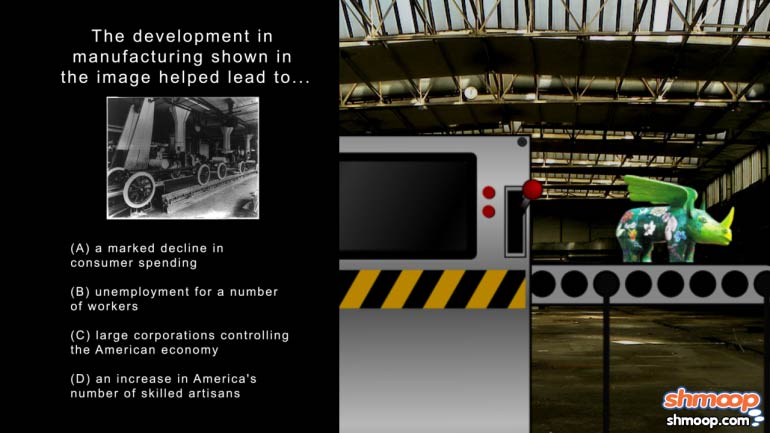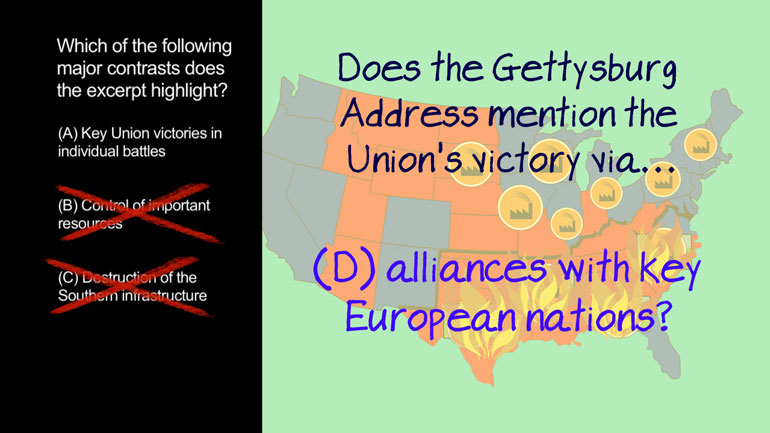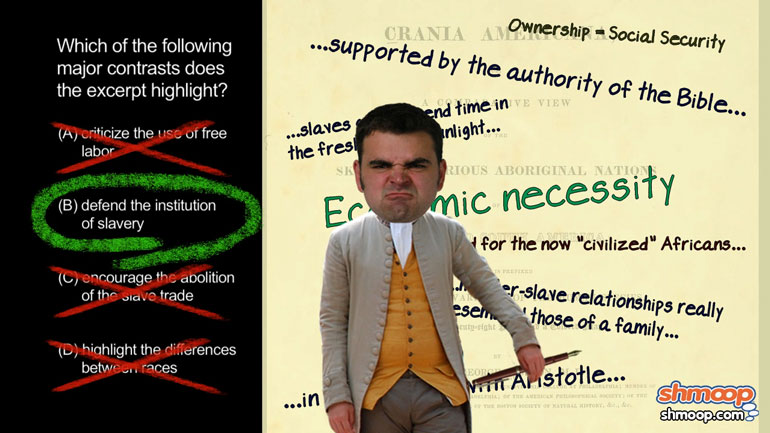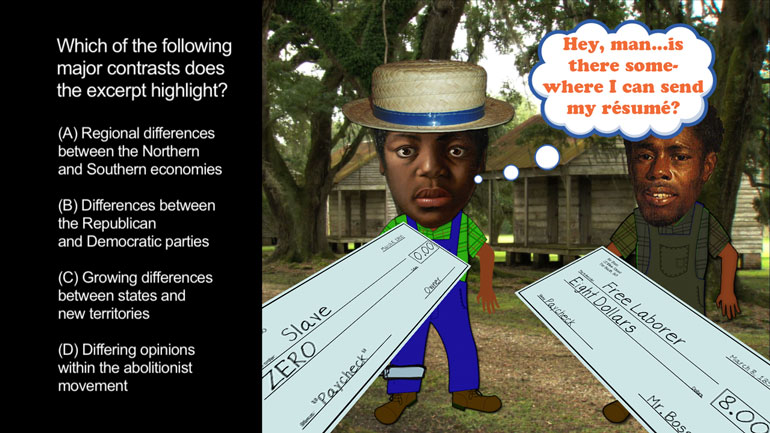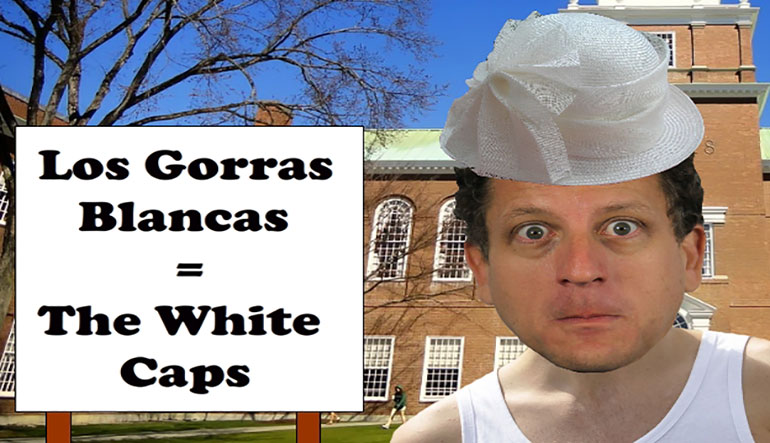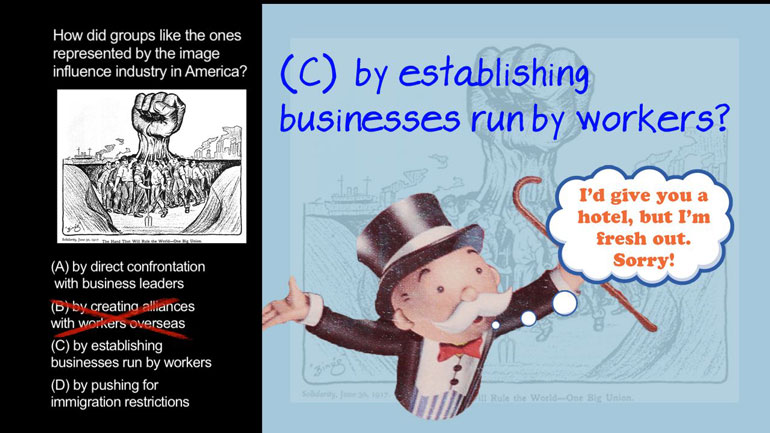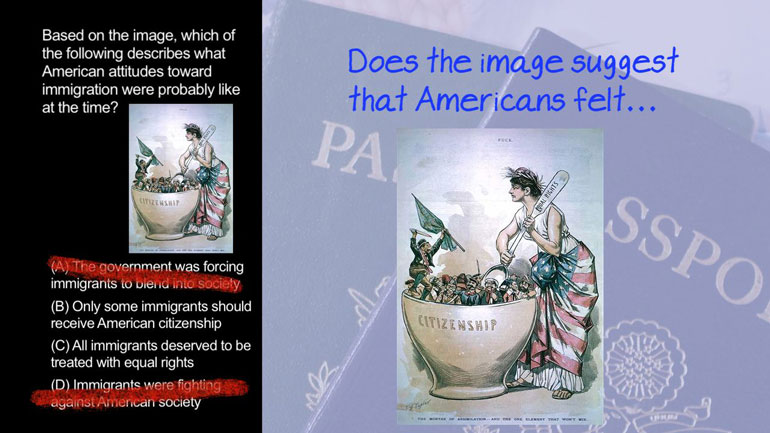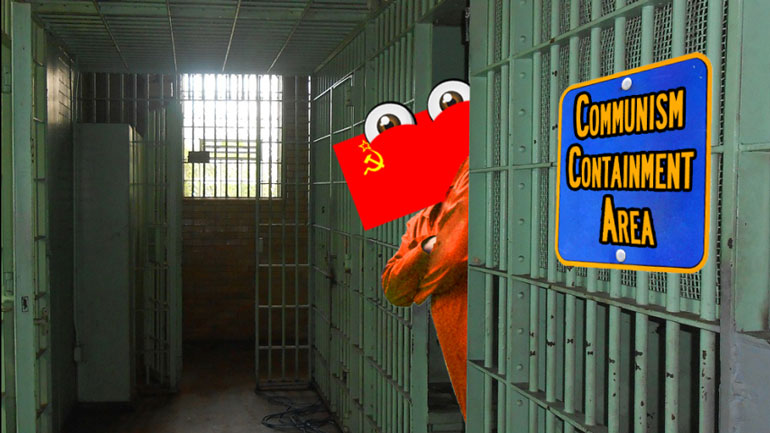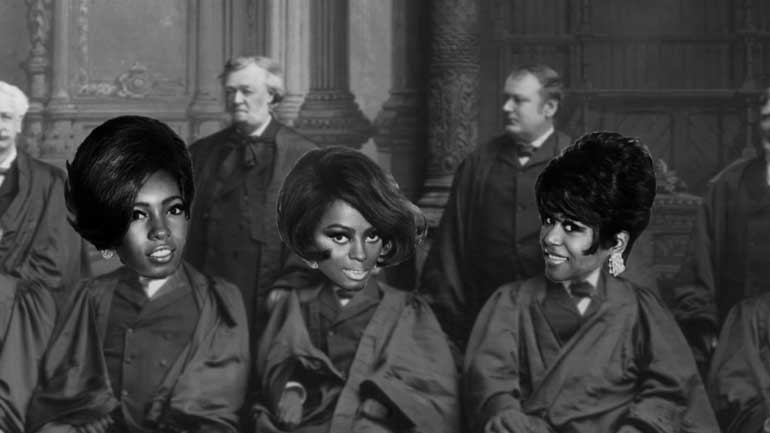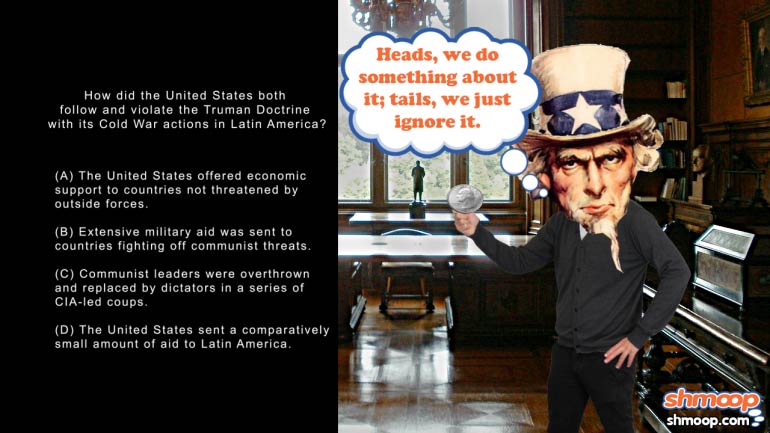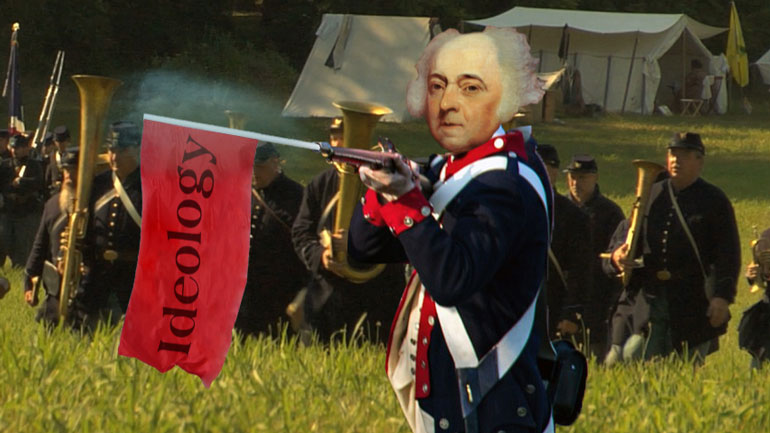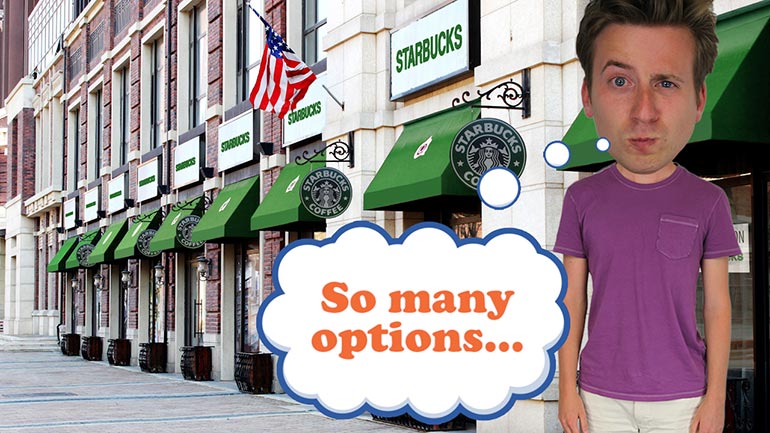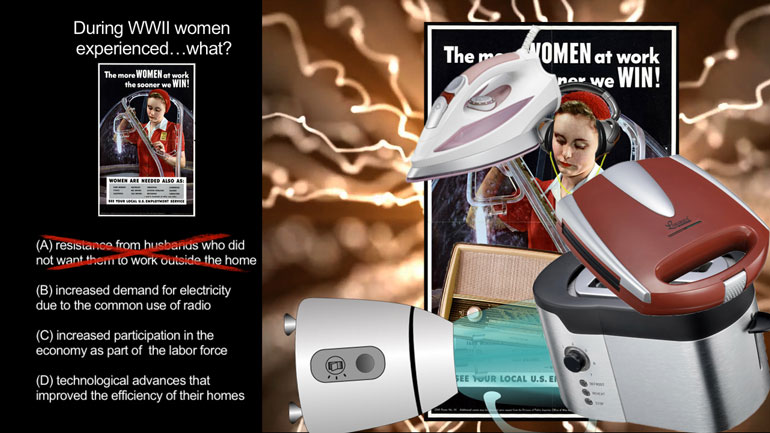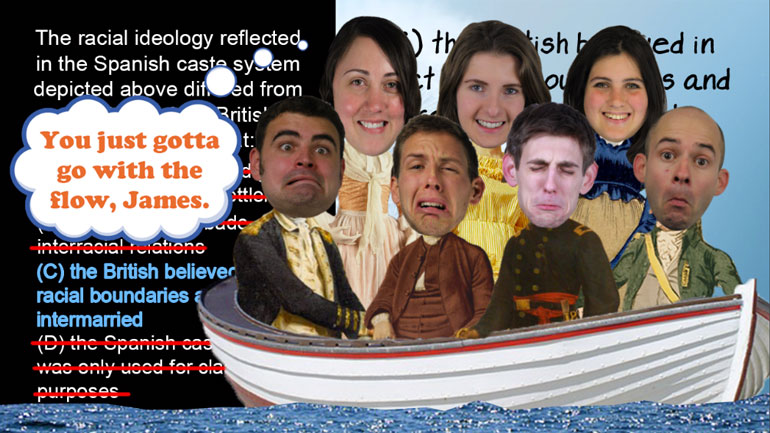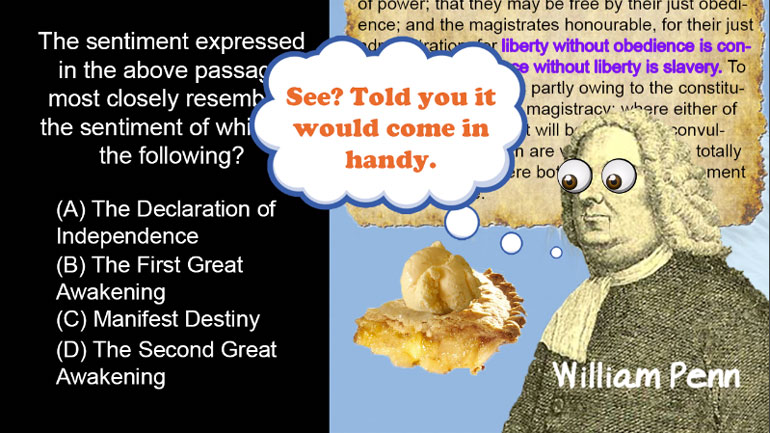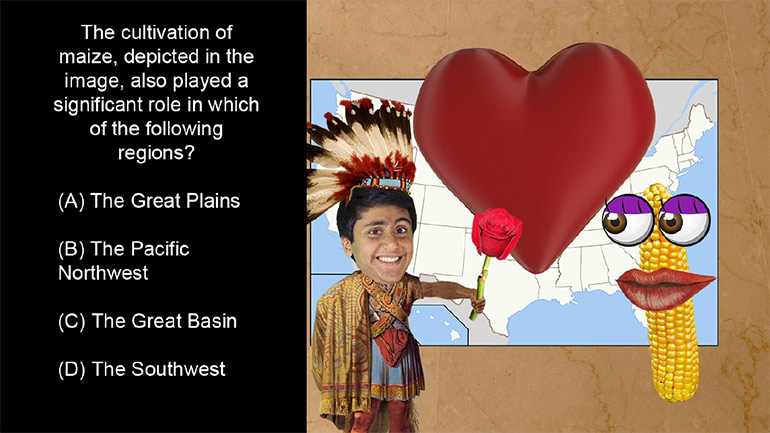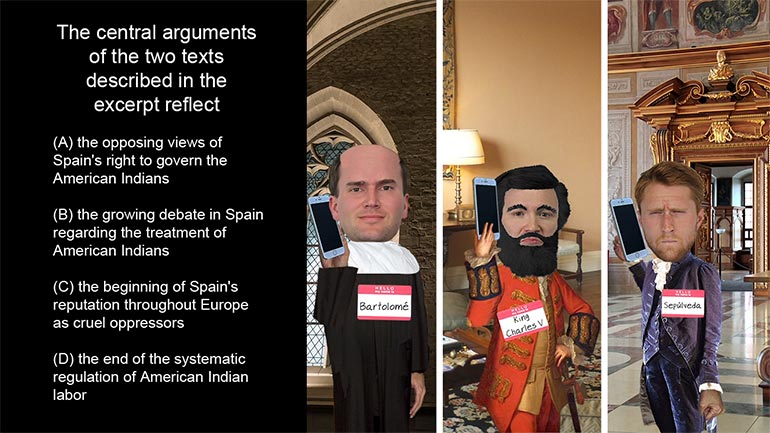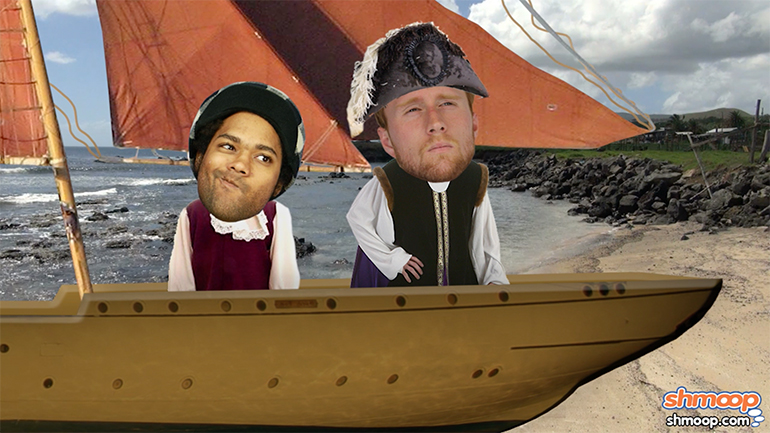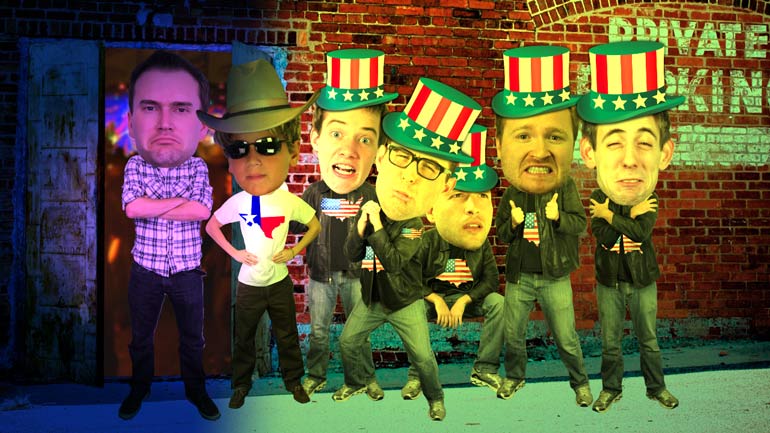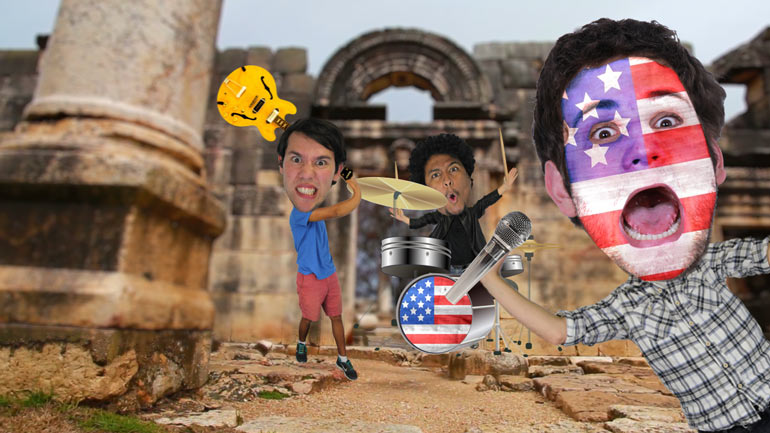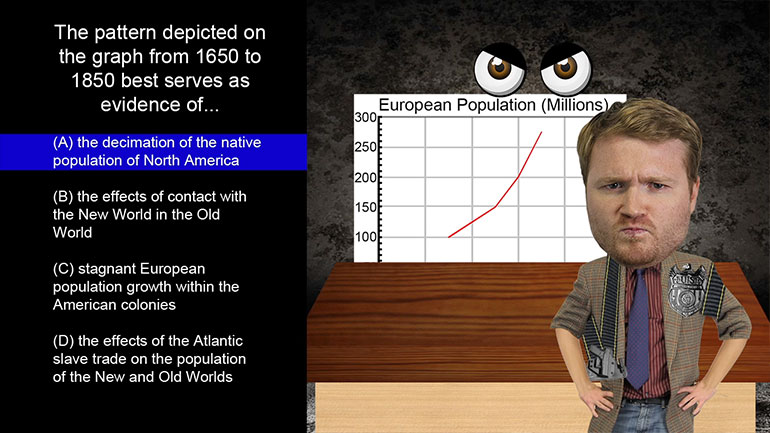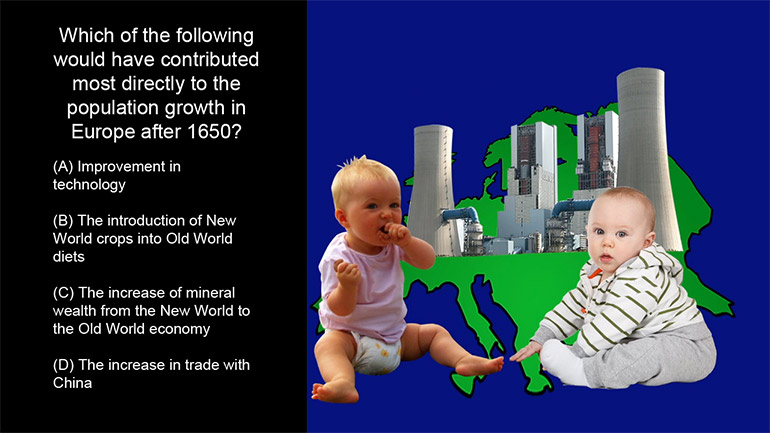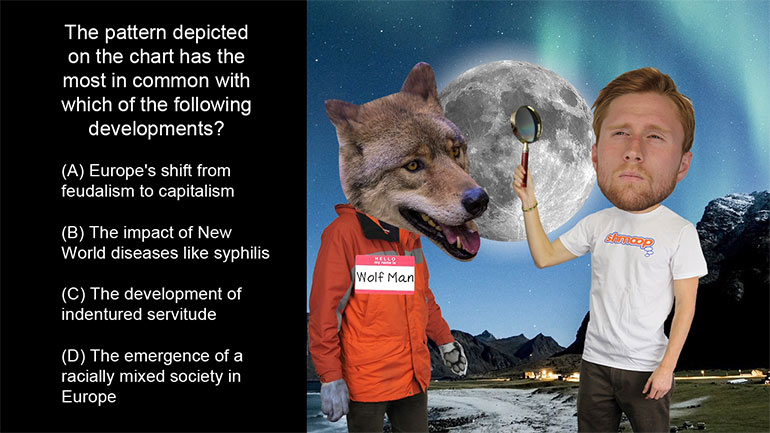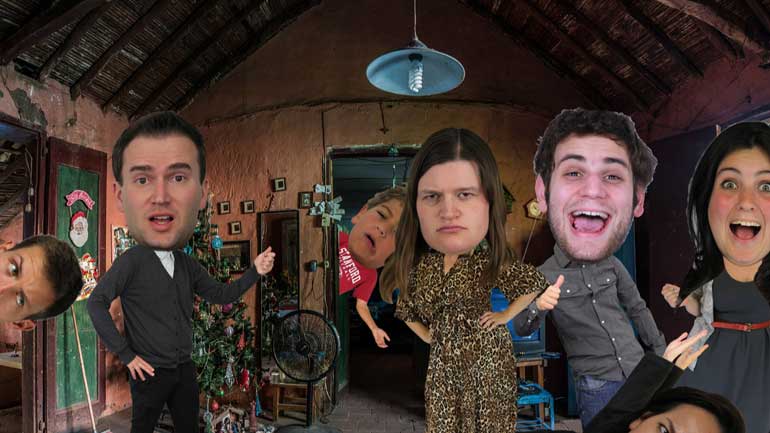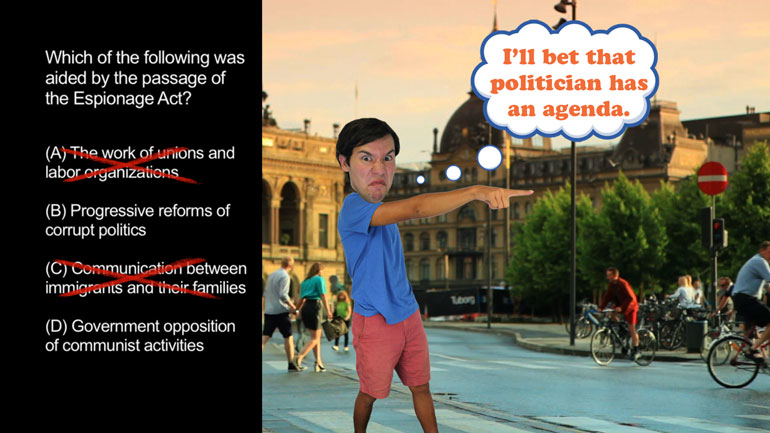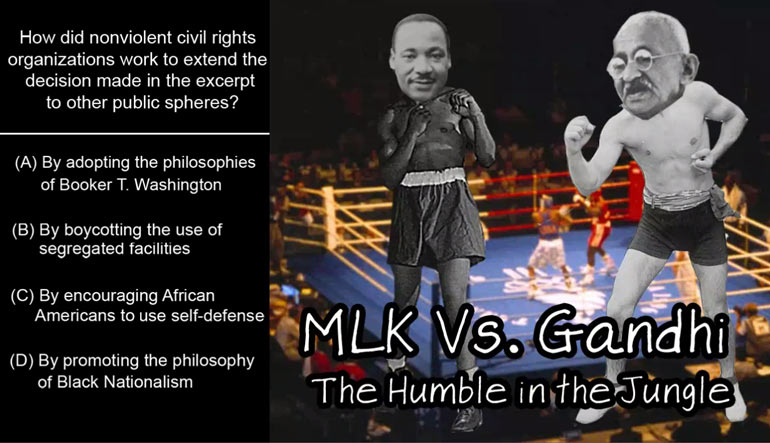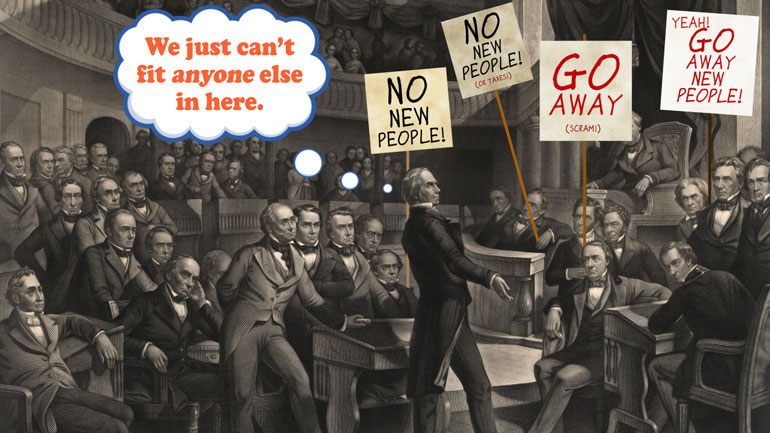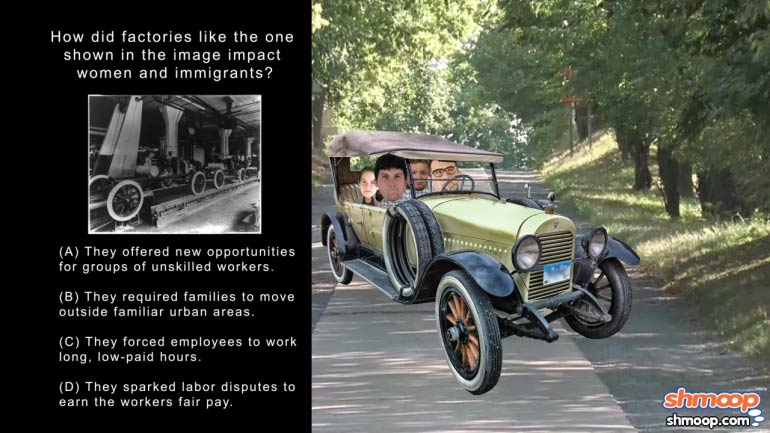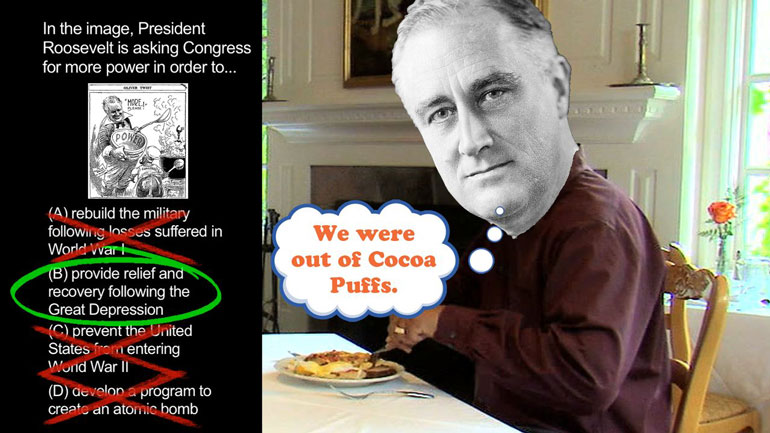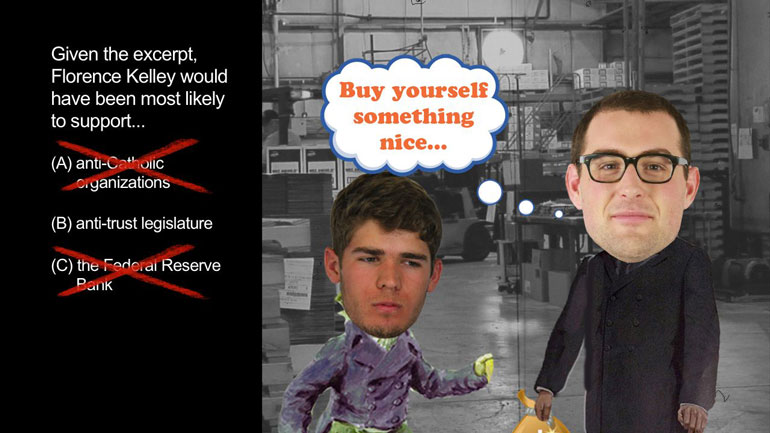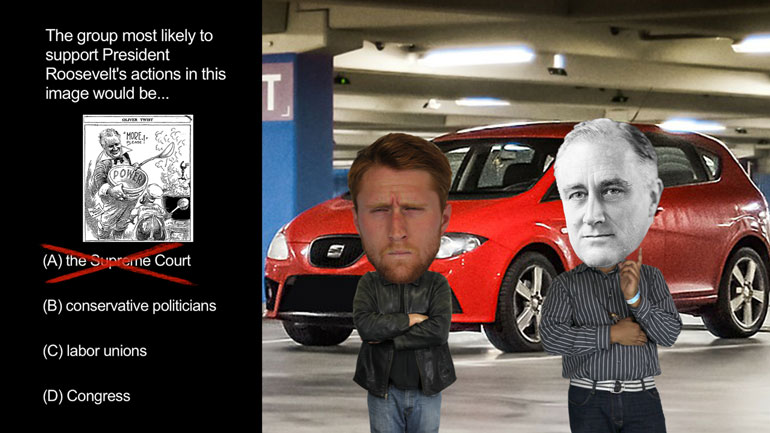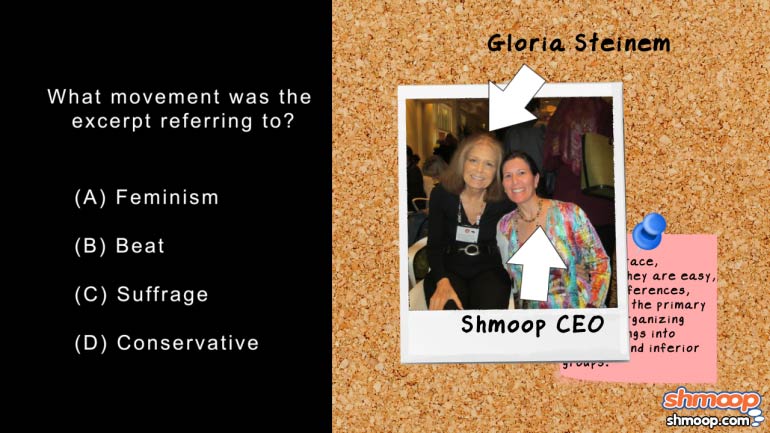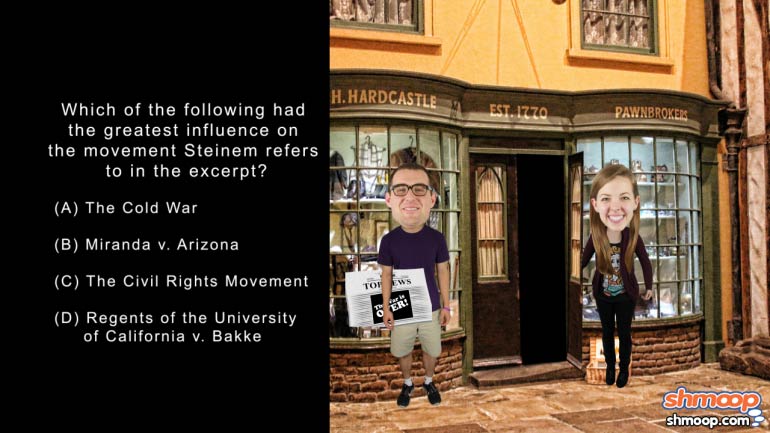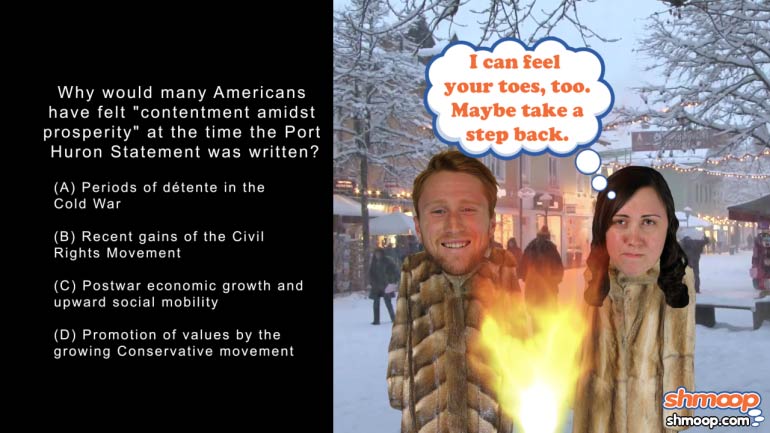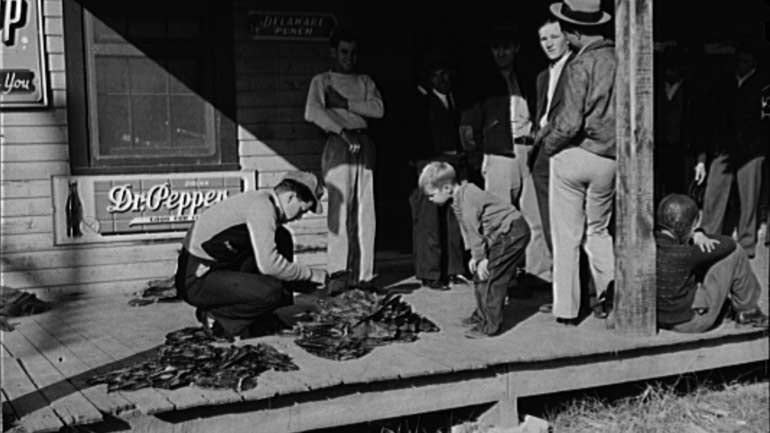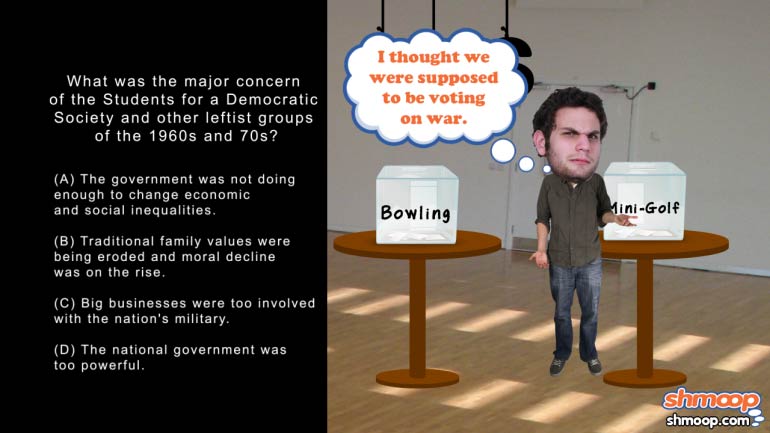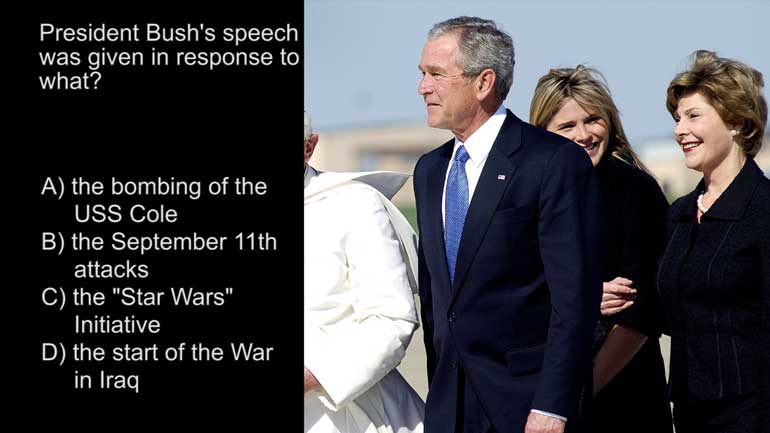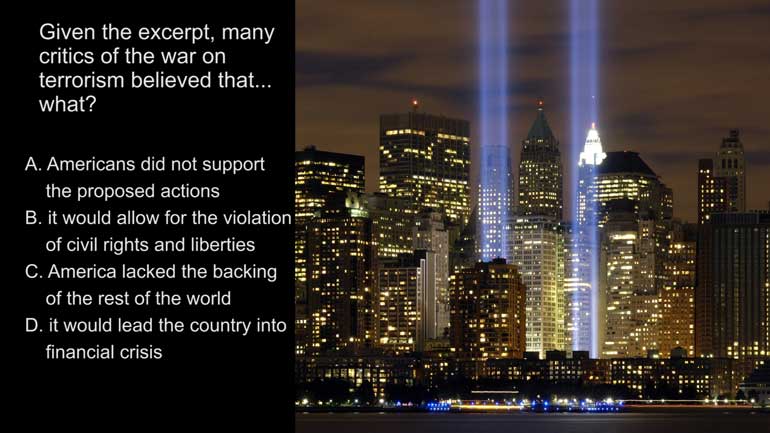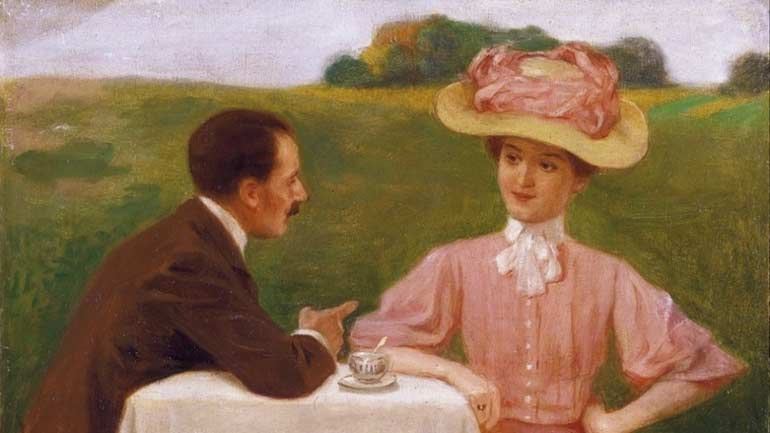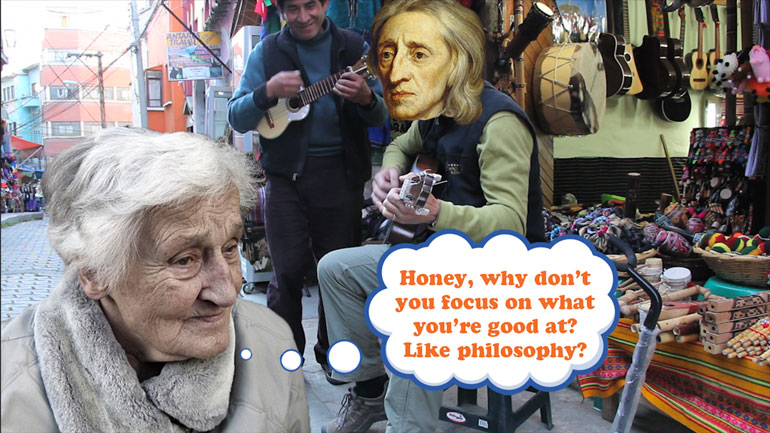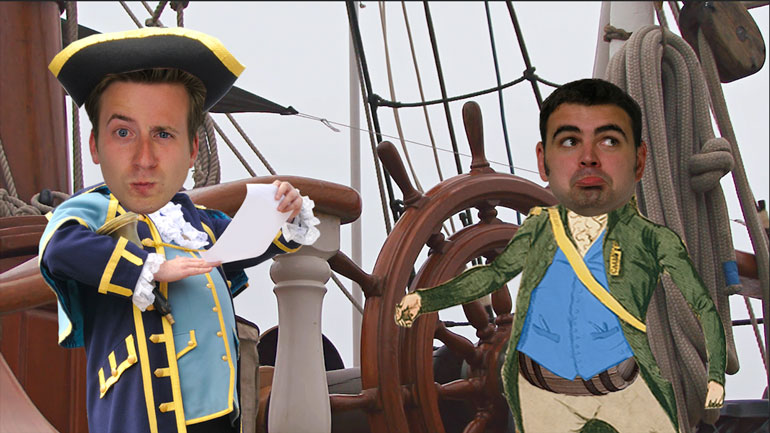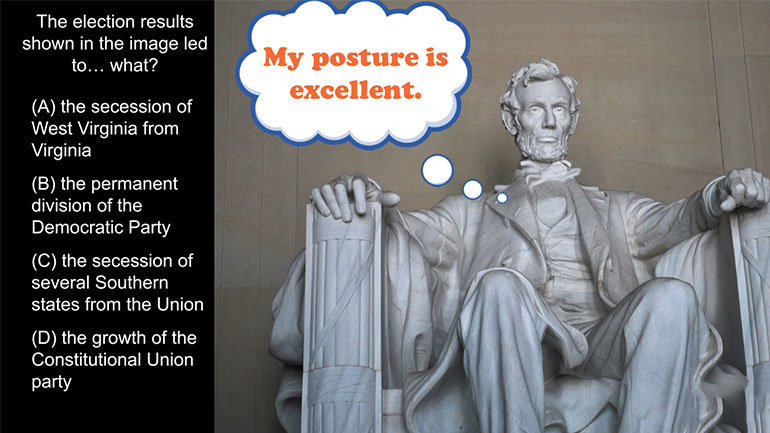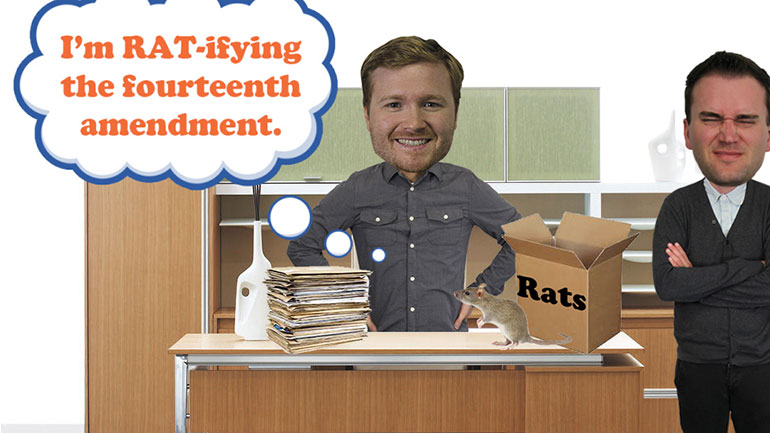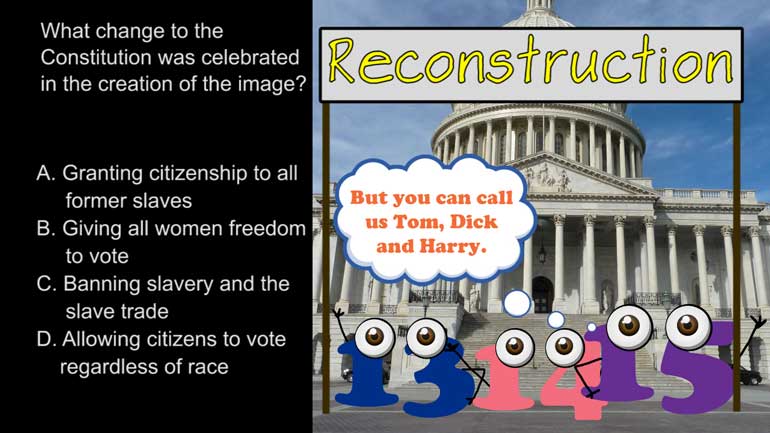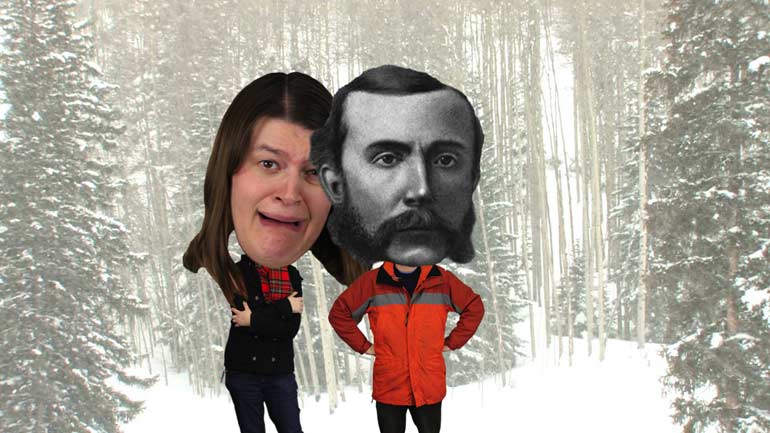ShmoopTube
Where Monty Python meets your 10th grade teacher.
Search Thousands of Shmoop Videos
Test Prep Videos 641 videos
AP U.S. History Exam 2.45. The journey shown on the map was an example of...what?
AP U.S. History Exam 2.26. This speech reinforced a shift in the focus of the war that Lincoln established by...what?
What did the Spanish messengers bring with them to North America? Hint: you probably wouldn't be thrilled to get this for your next birthday.
AP U.S. History Exam 1.28 170 Views
Share It!
Description:
AP U.S. History Exam 1.28. What made it possible for businesses to consolidate and grow in the way that the image represents?
Transcript
- 00:00
[ musical flourish ]
- 00:03
And here's your Shmoop du jour, brought to you by consolidation,
- 00:07
the transition of a company from its free-form
- 00:09
early stages into a solid corporate entity.
- 00:13
All right, what made it possible for businesses
Full Transcript
- 00:15
to consolidate and grow in the way that the image represents?
- 00:18
And here are your potential answers.
- 00:24
With technology booming in the post-Civil War era,
- 00:27
tycoons like John D. Rockefeller and his Standard Oil
- 00:30
made big gains in newly emerging markets,
- 00:32
building monopolies like the one detailed in the image.
- 00:35
Let's see which answer describes what led to these conditions
- 00:38
fit for a king of industry.
- 00:40
Was a major factor allowing these businesses to consolidate and grow
- 00:44
A - a decrease in immigration?
- 00:46
Actually, rising levels of immigration were
- 00:49
hugely important to the success of these companies
- 00:51
as they provided a cheap source of labor in this period of expansion.
- 00:54
So it's not A.
- 00:55
Did these businesses expand so aggressively
- 00:58
because of the C - development of foreign markets?
- 01:01
Though foreign markets were developing at the time,
- 01:03
Rockefeller and friends were doing pretty well within the United States,
- 01:07
particularly because of the government's
- 01:09
lack of regulatory legislation.
- 01:11
So that eliminates C and D.
- 01:13
Which means that the biggest factor allowing these tycoons
- 01:16
to consolidate their businesses was B -
- 01:18
laissez-faire government policies.
- 01:20
Someone probably should've been keeping watch
- 01:22
over Rockefeller and the other tycoons on their road
- 01:25
to monopolies, but strict regulation of business
- 01:28
wasn't the name of the game during this period.
- 01:30
So B is the right answer.
- 01:31
A few decades later, government regulation did
- 01:34
catch up to these corporations, busting trusts
- 01:36
and guts alike.
- 01:39
[ wind whistles ]
Related Videos
Ever heard of a "living document"? They eat and breathe just like the rest of us! They even walk around on their own two legs. Okay, fine—maybe t...
If the Puritans had gotten their way, religion would play a much larger role in lawmaking these days. Want to know more? Watch the video for all th...
What happened between the creation of the Articles of Confederation and the ratification of the current U.S. Constitution? This video analyzes the...
The Modernists thought the world had a lot of problems, and they were intent on fixing them—or at least talking about fixing them. Unfortunately,...
This video explains Federalism and the quest for a fair balance between state and national power. It covers the progression and compromises of Fede...

